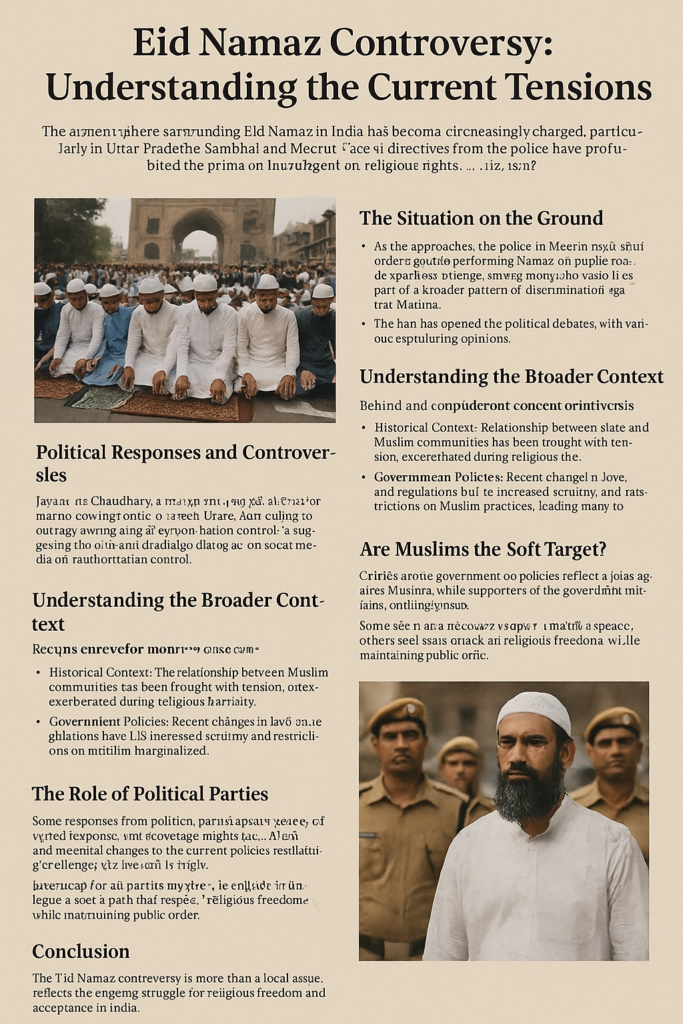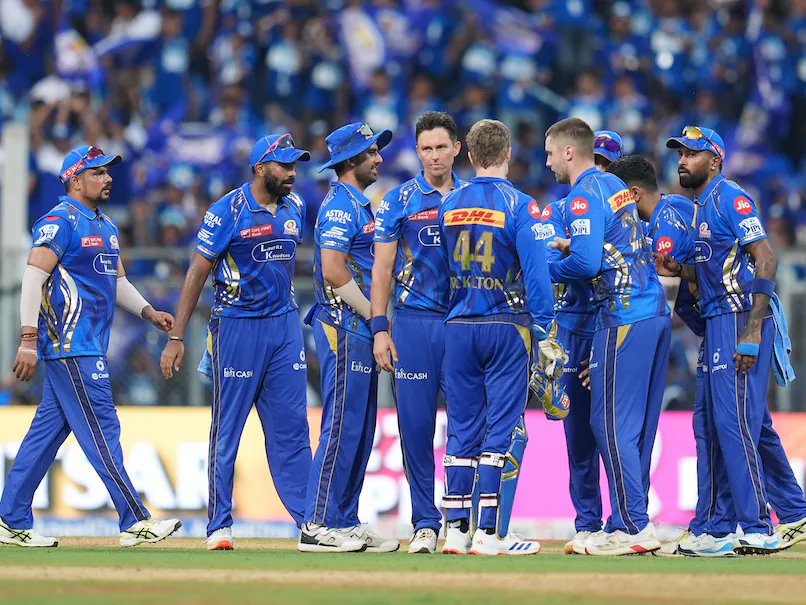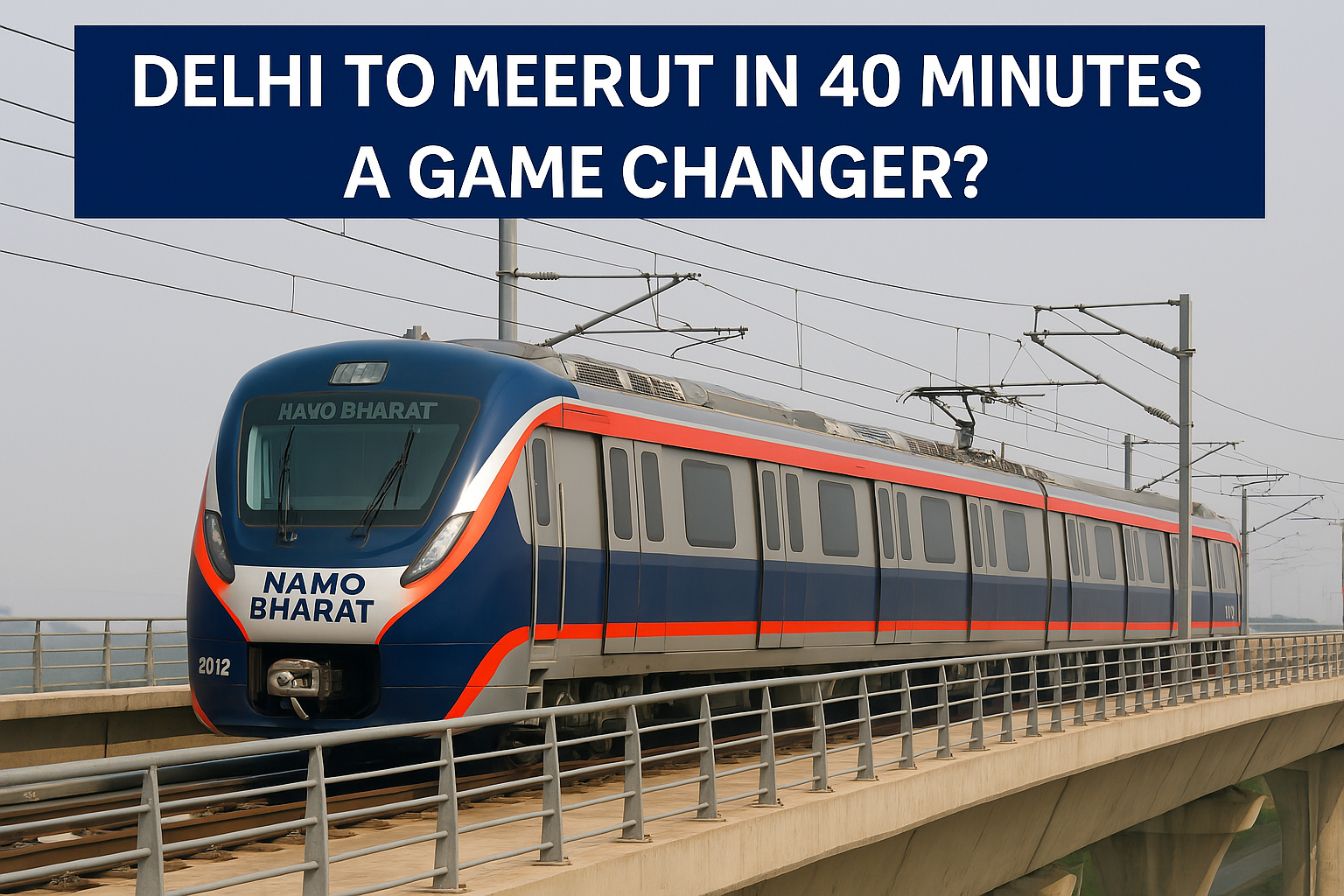Eid Namaz Controversy: Understanding the Current Tensions! Why the Restrictions on Prayers?

The atmosphere surrounding Eid Namaz in India has become increasingly charged, particularly in Uttar Pradesh’s Sambhal and Meerut. Recent directives from the police have prohibited the practice of Eid prayers on the streets, igniting a political firestorm and raising questions about religious freedoms and the treatment of Muslims in the country.
In this blog post, we’ll delve into the details of the current situation, the reactions from various political figures, and the implications this has for the Muslim community and broader society.
The Situation on the Ground
As the festival of Eid approaches, the police in Meerut have issued strict orders against performing Namaz on public roads. This decision has sparked outrage among many who view it as an infringement on religious rights. The question arises: why is there such a heightened sensitivity around this issue?
- Public Reaction: Many community leaders and citizens have expressed their discontent, arguing that this move is part of a broader pattern of discrimination against Muslims.
- Political Implications: The ban has opened the floodgates for political debates, with various parties weighing in on the issue, further polarizing opinions.
Political Responses and Controversies
One of the most vocal critics of the Meerut police’s decision has been Jayant Chaudhary, a minister in the central government. He drew parallels between the police action and George Orwell’s dystopian novel, 1984, suggesting that such restrictions are reminiscent of authoritarian control.
This commentary has sparked a significant dialogue on social media, with many supporting Chaudhary’s stance and others criticizing it, further deepening the divide in public opinion.
Understanding the Broader Context
To comprehend the gravity of the situation, it’s essential to explore the roots of these tensions. Several factors contribute to the current climate:
- Historical Context: The relationship between the state and Muslim communities has been fraught with tension, often exacerbated during religious festivals.
- Government Policies: Recent changes in laws and regulations have led to increased scrutiny and restrictions on Muslim practices, leading many to feel marginalized.
Are Muslims the Soft Target?
The question of whether Muslims are becoming a “soft target” in India is a pressing one. Critics argue that government policies increasingly reflect a bias against Muslims, while supporters of the government maintain that these measures are necessary for public order.
This dichotomy is evident in the reactions to the police orders in Meerut. Some view it as a necessary step to maintain peace, while others see it as an attack on religious freedoms.
The Role of Political Parties
The response from political parties has been varied, with some aligning with the police’s decision and others vehemently opposing it. The situation raises questions about the role of religion in politics and how it can be manipulated for electoral gain.
- BJP’s Strategy: The Bharatiya Janata Party (BJP) has been accused of using religious sentiments to rally support, particularly during election seasons.
- Opposition Voices: Parties like the Rashtriya Janata Dal (RJD) and the Aam Aadmi Party (AAP) have criticized the government’s stance, calling for greater respect for religious practices.
The Impact on the Muslim Community
For many Muslims, the restrictions on Namaz during Eid symbolize a larger issue of acceptance and respect within Indian society. The communal prayer is not just a religious obligation; it’s a celebration of identity and community.
The growing restrictions have left many feeling alienated and concerned about their place in a country they have called home for generations.
What’s Next? The Road Ahead
As the situation unfolds, it remains to be seen how the government will respond to the backlash and whether there will be any changes to the current policies regarding religious practices.
It’s crucial for all parties involved to engage in dialogue and seek a path that respects religious freedoms while maintaining public order. The challenge lies in finding a balance that honors the diversity of beliefs in India.
Conclusion
The Eid Namaz controversy is more than just a local issue; it reflects the ongoing struggle for religious freedom and acceptance in India. As we navigate these complex dynamics, it’s essential to foster understanding and respect among all communities.
What are your thoughts on the current situation? How do you think it might impact the Muslim community in the long term? Share your views in the comments below..





